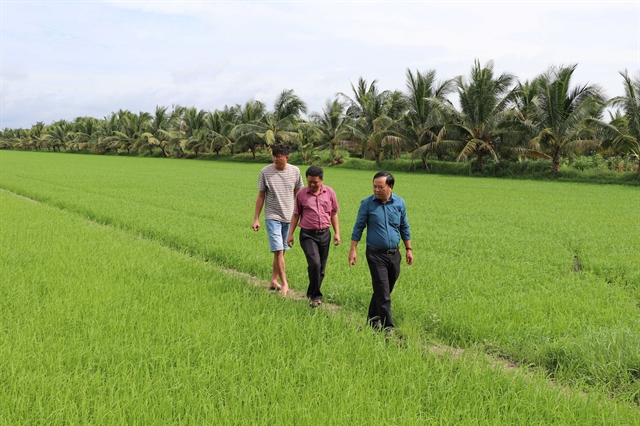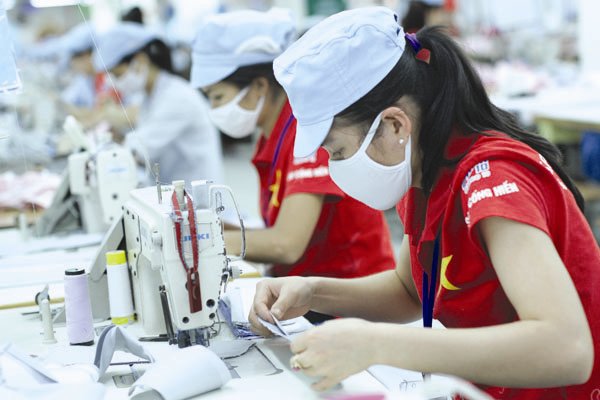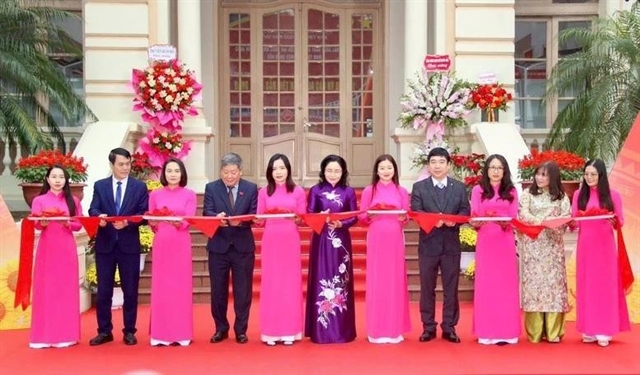 Economy
Economy

The middle income trap is closely tied to economic growth, so if growth doesn’t stay high and for decades and there is not high income per capita, the nation will fall into the middle income trap

|
| Workers process garment products. Policies on developing the industrial sector will play an important role to overcome middle income trap in Việt Nam. — Photo vietstock.vn |
HÀ NỘI — Policies to develop the industrial sector will be the key to keeping Việt Nam’s out of the middle income trap, according to experts.
The middle income trap is closely tied to economic growth, so if growth doesn’t stay high and for decades and there is not high income per capita, the nation will fall into the middle income trap, Deputy Director of the Central Institute of Economic Management (CIEM) Nguyễn Thị Tuệ Anh said at a workshop in Hà Nội on Thursday.
Policy is one of the most important factors to promote industrial development, she said.
Việt Nam is also facing challenges in overcoming the middle income trap requiring suitable management from the Government, she said.
According to Deputy Director of General Economics Department under the Central Economic Committee Hoàng Trường Giang, the labour force and workers’ skills are hugely important, so Việt Nam must improve labour productivity of workers and enterprises.
Ngô Minh Tuấn, CIEM researcher, said Việt Nam must focus on developing several fundamental industries and meeting the demand for basic means of production in the economy.
Việt Nam also needs to focus on developing support industries, strengthening links between multinational corporations and domestic enterprises, forming support industrial complexes and linking commodity chains, he said.
Tuệ Anh said so far, only a few countries have overcome the middle income trap. According to the CIEM's research, productivity growth is a decisive factor in Việt Nam’s solutions on overcoming the middle income trap, with support from reforms of technology and institution.
The Government has directed economic restructuring towards industrialisation and transformation from agricultural economy to industrial economy, aiming to increase labour productivity and income per capita as well as to upgrade all industrial sectors.
First of all, the processing and manufacturing industry produces higher value-added and more complicated products and increase labour productivity, she said.
In addition, the Government has employed a solution to restructure the manufacturing and processing industry from producing consumer goods such as food, garment, tobacco and wood, to capital goods such as chemicals and metals, machinery and equipment and motor vehicles.
According to Tuệ Anh, the Government, the authorities need to find ways to mobilise maximum potential and take advantage of opportunities for focusing on support industrial development, wit a focus on the private sector. VNS




